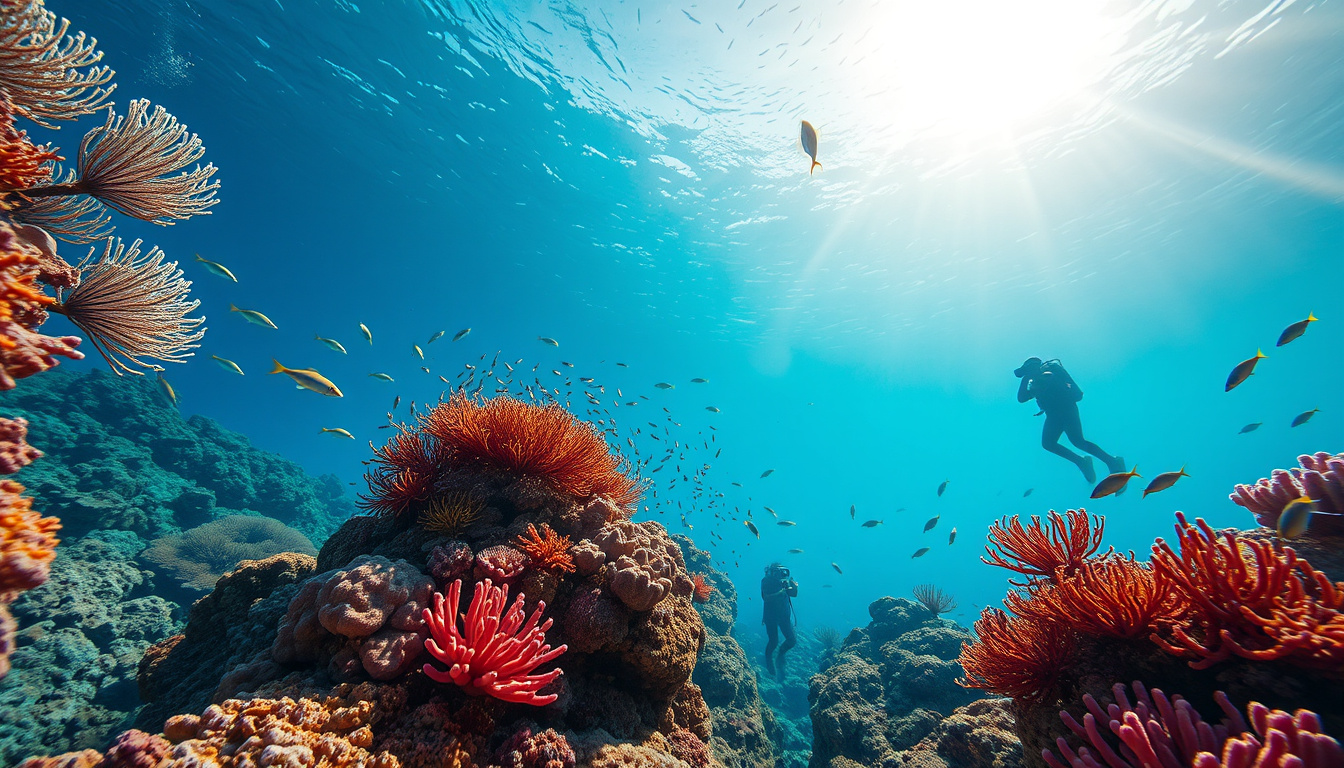The vibrant underwater landscape of the Red Sea is one of the planet’s most breathtaking natural wonders, home to an extraordinary diversity of marine life and a complex ecosystem that includes stunning coral reefs.
However, these invaluable ecosystems are under threat, making Red Sea coral conservation an urgent priority.
This article delves into the crucial importance of coral reefs, the various threats they face, effective conservation strategies, community engagement efforts, and future directions in the fight to preserve this underwater paradise.


Key Strategies for Coral Conservation
## Key Strategies for Coral Conservation in the Red Sea
The Red Sea is renowned for its spectacular marine life and vibrant coral reefs, making it a critical area for coral conservation efforts.
With the increasing impact of climate change, pollution, and coastal development, protecting these unique ecosystems is more important than ever.
Here are some key strategies for effective Red Sea coral conservation:
###
1.
Promoting Sustainable Tourism
Encouraging responsible tourism practices can significantly reduce the stress on coral reefs.
This includes educating tourists about the importance of coral ecosystems and promoting activities that have minimal impact on marine life.
Tour operators can adopt guidelines to limit the number of divers in sensitive areas and ensure that their excursions do not damage the fragile coral structures.
###
2.
Implementing Marine Protected Areas (MPAs)
Establishing marine protected areas is crucial for coral conservation in the Red Sea.
These designated zones help to restrict harmful activities such as overfishing and pollution, creating safe havens for coral to thrive.
Effective management of MPAs includes enforcing regulations and conducting regular assessments to monitor ecosystem health.
###
3.
Conducting Research and Restoration Projects
Investing in scientific research is vital to understand coral reef dynamics and devise effective conservation strategies.
Restoration projects, including coral gardening and transplantation, can help rehabilitate degraded reefs.
Collaboration with universities and conservation organizations can enhance knowledge and produce innovative solutions for sustaining coral ecosystems.
###
4.
Community Engagement and Education
Engaging local communities in coral conservation efforts fosters a sense of stewardship over the marine environment.
Educational programs can raise awareness about the significance of coral reefs and inspire collective action to protect them.
By involving fishermen and residents in conservation initiatives, their livelihoods can align with sustainable practices.
###
5.
Reducing Land-Based Pollution
Land-based activities such as agriculture and urban development contribute significantly to coral reef degradation.
Implementing stricter regulations on waste management and encouraging the use of eco-friendly products can help reduce runoff that harms coral ecosystems.
Additionally, promoting the use of sustainable agricultural practices can lead to healthier coastal waters.
By adopting these strategies, we can support Red Sea coral conservation and ensure that these remarkable underwater landscapes remain resilient for generations to come.
Whether you are a traveler eager to explore these vibrant reefs or an expat considering a move to this beautiful region, understanding the importance of preserving the Red Sea’s unique marine environment is essential.
Together, we can make a difference.
Community Engagement and Education
### Community Engagement and Education in Red Sea Coral Conservation
In the heart of Egypt, the vibrant and delicate ecosystems of the Red Sea host some of the most stunning coral reefs in the world.
However, these natural wonders face significant threats from climate change, pollution, and unsustainable tourism practices.
To combat these issues and foster long-term preservation, community engagement and education are critical components of Red Sea coral conservation efforts.
Local communities are increasingly becoming more aware of the importance of preserving their marine environment.
Initiatives including workshops, clean-up campaigns, and educational outreach programs aim to instill a sense of responsibility among residents and visitors alike.
By involving fishermen, tour operators, and local businesses, these programs emphasize sustainable practices that benefit both the economy and the environment.
For instance, fishermen are trained in sustainable fishing methods that reduce damage to coral habitats, while tour operators receive guidelines on how to conduct eco-friendly tours that minimize the impact on the reefs.
Moreover, educational programs in schools educate younger generations about the value of the Red Sea corals, encouraging them to become future advocates for marine conservation.
By promoting hands-on experiences such as snorkeling trips and guided eco-tours, participants can explore the beauty of these underwater ecosystems while learning about the intricate connections between coral reefs and their role in marine biodiversity.
Community-driven conservation efforts have proven to be effective in establishing a strong local pride in Egypt’s natural resources.
When individuals feel a personal connection to their environment, they are more likely to take action to protect it.
The integration of local knowledge with scientific research further enhances these initiatives, ensuring that strategies are both culturally relevant and effective for the region.
For travelers looking to contribute to Red Sea coral conservation, many eco-tourism operators offer opportunities to participate in restoration projects.
Whether through volunteering or simply choosing eco-friendly tours, visitors play a vital role in supporting these initiatives.
As you plan your trip to Egypt, consider how you can make a positive impact on this beautiful and fragile environment, ensuring that future generations can also marvel at the wonders of the Red Sea.
 February 2026
February 2026

